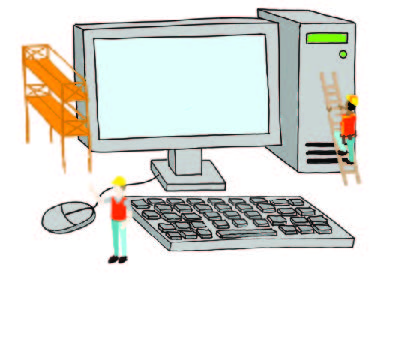
Interim head of OIT acknowledges technology faults
By Kaitlyn McCormick and Shaun Chornobroff
AFTER Rider’s decision last summer to outsource its Office of Information Technologies (OIT) generated problems and faculty complaints throughout this academic year, Rider’s Interim Chief Information Officer (CIO), Oliver Wendt, admitted the university’s technology is underperforming.
In an email sent to faculty and staff at 12:16 a.m. on March 24, Wendt provided an official judgment in the interest of being “open and transparent on the state of classroom technology.”
“I too share your frustration with the state of technology and wholeheartedly agree that current classroom systems do not meet the needs of Rider University or most importantly, our students,” Wendt wrote. “I want to be clear on the current state of classroom systems. Most classrooms are beyond equipment end-of-life and end-of-support.”
This verdict comes on the heels of many instances of classroom technology failing the university’s faculty and students. This year, many professors were affronted by faulty services that disrupted and delayed their lesson plans while awaiting repairs.
However, in an email to faculty and staff on April 4, Rider’s Senior Vice President for Finance and Chief Financial Officer James Hartman announced a planned remedy: “Our goal is to begin installation of the new classroom technology this summer to have a majority of our classrooms outfitted before the start of the Fall semester.”
Hartman’s email also pledged, “Essentially, the new [classroom] technology will include flexible and mobile options for faculty to utilize based on their preference” and that the school “will also be working collaboratively on an updated process to replace faculty and staff computers on an ongoing basis, essentially no later than every five years.”
Hartman also announced the university expects a permanent head of OIT will join Rider early next month, replacing Wendt.
Professor Emre Yetgin, an executive committee member of Rider’s chapter of the American Association of University Professors (AAUP), said that while it is not an official title, he serves “more or less” as a liaison between the union and the OIT department to communicate issues specifically relating to classroom technology.
According to Yetgin, faculty across the university have waged complaints including, but not limited to, faulty projectors and audio system issues.
In an email to its bargaining-unit members obtained by The Rider News, the AAUP Executive Committee noted that during labor negotiations throughout the summer that the administration accused the union of exaggerating the prevalence of these issues. “Six months later, the administration admits that ‘Most classrooms are beyond equipment end-of-life and end-of-support’ and that the technology in the classroom is “breaking down at a rate faster than we can immediately provide any relief,” the email read.
Outside of concerns of physical technology, faculty have also expressed problems with practices such as the university’s new two-step verification, which English professor Megan Titus said often eats into class time. There have also been non-physical issues relating to lacking software updates and Canvas malfunctions that have impacted students and professors alike.
Yetgin recounted the experience of one undisclosed professor from a compilation of faculty complaints who couldn’t log into their classroom computer, tried calling the help desk and was halted by a dead classroom phone.
The issue, Yetgin said, boils down to a lacking budget and infrastructure.
As Wendt communicated with faculty and staff in his email, “Unfortunately, effort is not a factor when it comes to equipment lifespan and functionality.” and as technology is breaking down at a rate faster than OIT is equipped to handle even on a temporary basis, “All classroom spaces must be reengineered, with substantial investment to provide the most basic levels of service.”
Yetgin made it clear that neither he nor the AAUP blame Wendt or OIT personnel directly for these problems, rather the overall impacts of inadequate allocation of university resources.
“I want to make it clear that there is not an issue regarding the efforts OIT has supported. We really appreciate the ongoing and extensive efforts of OIT trying to fix, and, when it’s not possible, somehow maintain the classroom technology, and we know that they are working really hard. We also appreciate their openness and transparency about these issues,” Yetgin said.


